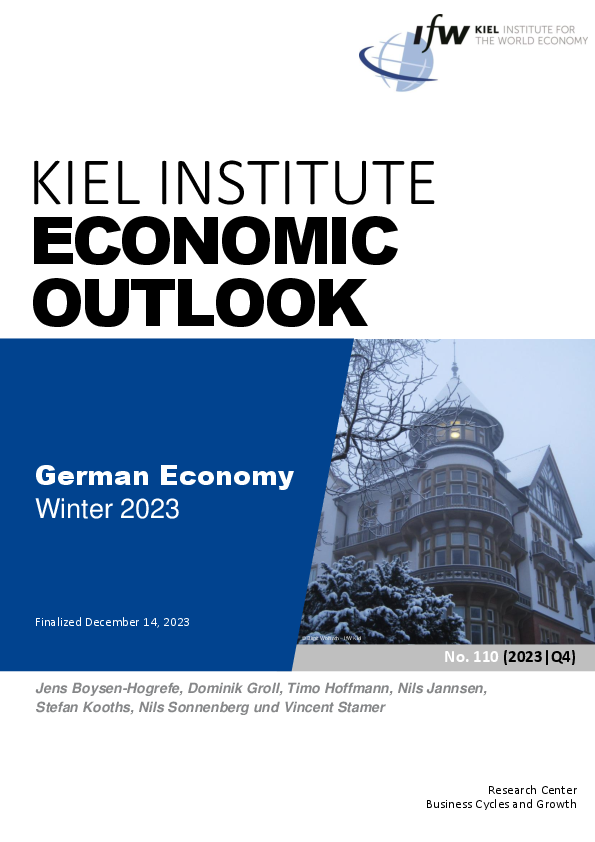Economic Outlook
German Economy in Winter 2023: Public budget under stress – Recovery faces headwinds
Authors
Publication Date
Key Words
Related Topics
Business Cycle Germany
The German economy is struggling to emerge from stagnation. GDP is likely to increase again in 2024, but the economic momentum will remain low. The strong growth in real disposable income will boost private consumption. However, the increases in interest rates continue to weigh on construction investment and there are no signs of large impulses from the world economy ahead. Moreover, the fiscal consolidation because of the Federal Constitutional Court's judgement on the supplementary budget for 2021 will slow economic expansion. There is uncertainty regarding the exact structuring of the reductions in expenditure as well as their economic impact. In the forecast, the additional savings will reduce growth in GDP by around 0.3 percentage points in 2024. Overall, we now expect GDP to increase by 0.9 percent in the coming year and thus at a slower pace than in our autumn forecast (1.3 percent). In 2025, economic output is likely to increase by 1.2 percent (autumn forecast: 1.5 percent). The decline in the current year of 0.3 percent will be slightly lower than expected in the autumn (-0.5 percent). Inflation has fallen significantly. For the next two years, we expect rates of 2.3 percent (2024) and 1.8 percent (2025), after 5.9 percent in the current year. The low economic momentum is leaving its mark on the labour market. However, demographic change and the associated shortage of skilled labour are counteracting this. The government's financing deficit is expected to fall from 2.5 percent relative to GDP in 2022 to 0.7 percent in 2025. The debt level will fall from 66.1 percent to 62.4 percent in the same period.










